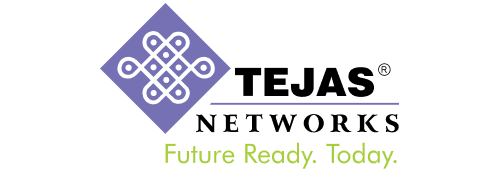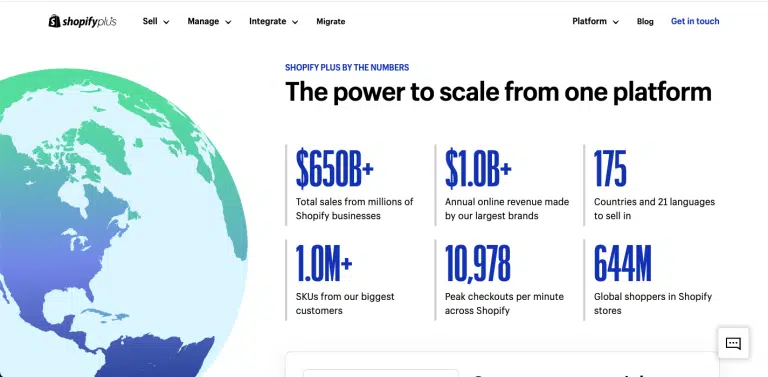For mid-sized Direct-to-Consumer (D2C) brands, the essence of effective business governance cannot be overstated. Business governance, comprising processes, policies, and structures, is the guiding force behind streamlined operations, regulatory compliance, and sustained growth. For mid-sized D2C brands, navigating the intricacies of the market necessitates a strategic approach to resource management, risk mitigation, and adherence to industry regulations. As a compass guiding decision-making and operational efficiency, business governance becomes paramount in shaping the trajectory of these brands. One transformative avenue for fortifying business governance lies in bespoke software solutions—custom-tailored tools designed to address the unique needs of mid-sized D2C enterprises. This article delves into the pivotal role of business governance within this context, emphasising the significance of optimised operations, regulatory compliance, and growth, while offering insights into how bespoke software can revolutionise and streamline these crucial aspects of business management.
Understanding Governance Needs for Mid-sized D2C Brands
In the domain of mid-sized Direct-to-Consumer (D2C) brands, a detailed comprehension of governance requirements is essential, given the distinctive challenges that these companies encounter. One prevalent challenge lies in compliance requirements, where mid-sized D2C enterprises must grapple with adhering to a myriad of industry regulations spanning data protection, product labelling, and consumer rights. Additionally, the intricate landscape of risk management poses a constant concern, demanding vigilant strategies to mitigate potential threats and uncertainties. Scalability concerns further compound these challenges, as mid-sized D2C brands aspire to expand operations without compromising efficiency or incurring undue complexities. Operational intricacies, including supply chain management and inventory control, add another layer of complexity.
In this landscape, effective governance emerges as a linchpin, playing a crucial role in supporting efficient decision-making processes and maintaining accountability. By addressing compliance, risk, scalability, and operational challenges, robust governance not only ensures the seamless functioning of mid-sized D2C brands but also establishes a foundation for sustainable growth in this competitive market.
The Significance of Bespoke Software in Business Governance
In business governance, bespoke software emerges as a powerful ally, uniquely tailored to address the distinctive needs of enterprises. Unlike one-size-fits-all solutions, bespoke software is crafted with precision, offering a nuanced approach to meet the intricate demands of governance in diverse business environments.
Defining Bespoke Software and Tailored Governance
Bespoke software refers to custom-built applications designed to cater specifically to the unique requirements of a business. In the context of governance, this tailored approach becomes particularly crucial as it allows for the creation of solutions aligned precisely with the intricacies of an organisation’s governance framework. This bespoke nature ensures that the software not only meets the immediate needs but also evolves seamlessly with the evolving governance landscape.
Exploring Flexibility, Scalability, and Customization
One of the primary advantages of bespoke software in the realm of business governance is its inherent flexibility. Off-the-shelf solutions often impose limitations, constraining organisations to adapt their governance processes to fit the software. In contrast, bespoke solutions can be flexibly moulded to integrate seamlessly with existing governance structures, accommodating unique workflows and evolving regulatory requirements.
Scalability is another key factor where bespoke software excels. As businesses, especially mid-sized ones, grow and witness changes in governance complexity, bespoke solutions can be easily scaled to accommodate these transformations. Whether expanding operations, entering new markets, or adapting to regulatory shifts, the customizable nature of bespoke software ensures a harmonious alignment with the evolving governance needs of the business.
Advantages Over Off-the-Shelf Solutions
Off-the-shelf software may provide a quick fix, but it often falls short in meeting the nuanced governance needs of enterprises. Bespoke software, on the other hand, offers a tailored solution that precisely fits the governance puzzle. The advantages include enhanced security, as bespoke software is less vulnerable to widespread threats that often target generic solutions. Moreover, customization ensures that the software aligns seamlessly with the company’s unique governance practices, fostering efficiency and reducing the risk of errors.
Impact of Bespoke Software on Governance Processes
Bespoke software solutions have emerged as transformative tools, revolutionising governance processes within organisations. Tailored to address specific needs, these custom-built applications go beyond the limitations of off-the-shelf solutions, significantly impacting and enhancing governance practices.
Enhanced Governance Practices
Bespoke software plays a pivotal role in enhancing governance practices by providing tailored solutions that align precisely with the unique requirements of an organisation. Unlike generic alternatives, bespoke solutions are designed to seamlessly integrate with existing governance frameworks, offering a level of precision that is crucial for optimal performance.
Examples of Streamlined Risk Management
In the realm of risk management, bespoke software demonstrates its prowess through tailored risk assessment and mitigation features. Take, for instance, a financial institution handling sensitive data. Bespoke software can be customised to identify potential risks, monitor transactions, and implement proactive measures to prevent fraudulent activities. This level of customization goes beyond the capabilities of generic software, offering a targeted approach to risk management that is essential for safeguarding the organisation.
Operational Efficiency and Case Studies
Operational efficiency is a key area where bespoke software shines. For instance, a manufacturing company facing supply chain complexities can benefit from a tailored solution that optimises inventory management, order processing, and logistics. Through the implementation of bespoke software, operational bottlenecks are mitigated, leading to improved efficiency and a streamlined production process.
Facilitating Data-Driven Decision-Making
Bespoke software empowers organisations to make data-driven decisions by providing tailored analytics and reporting tools. A case study in the retail sector may reveal how a customised software solution enables the analysis of customer behaviour, inventory trends, and sales patterns. This data-driven approach facilitates informed decision-making, guiding the organisation towards strategies that align with market demands and internal objectives.
Improving Accountability with Real-world Examples
Leveraging Bespoke Solutions for Growth and Compliance
In the ecosystem of mid-sized D2C brands, leveraging bespoke solutions for growth and compliance stands as a strategic imperative. From ensuring regulatory adherence to facilitating scalability and adaptability, the tailored approach of bespoke software paves the way for sustained success and a competitive edge in an ever-evolving market.
Achieving Regulatory Compliance
Bespoke software serves as a tailored shield against the complex regulatory landscapes faced by mid-sized D2C brands. Consider a scenario where a healthcare-focused D2C brand needs to comply with stringent data protection regulations. A customised software solution can be designed to encrypt sensitive patient information, enforce access controls, and regularly audit data-handling processes to ensure compliance with industry standards. The result is not just regulatory adherence but a proactive and dynamic approach to compliance that shields the brand from potential legal ramifications.
Scaling Operations and Resource Management
As mid-sized D2C brands strive for growth, bespoke software becomes a strategic enabler for scaling operations and efficient resource management. Take, for instance, a retail brand experiencing rapid expansion. A tailored inventory management system can be designed to seamlessly integrate with sales channels, automate order processing, and optimise stock levels in real-time. This not only ensures a streamlined supply chain but also facilitates efficient resource allocation, preventing stockouts and reducing excess inventory. The adaptability of bespoke solutions allows mid-sized D2C brands to scale operations without sacrificing operational efficiency.
Adapting to Evolving Governance Needs
The agility of bespoke software is particularly beneficial when it comes to adapting to evolving governance needs. In a fast-paced market where regulatory requirements and industry standards constantly evolve, a customised solution can be easily modified to accommodate these changes. For example, a financial services D2C brand facing shifting compliance standards can swiftly update its bespoke software to incorporate new reporting requirements or security protocols, ensuring continued alignment with governance best practices.
Potential Long-Term Benefits and Competitive Advantages
Investing in bespoke software for business governance yields a spectrum of long-term benefits and competitive advantages for mid-sized D2C brands. The ability to proactively address compliance requirements not only mitigates legal risks but also fosters a reputation for reliability and trust among consumers. The scalable nature of bespoke solutions ensures that as the business expands, the software seamlessly grows with it, eliminating the need for disruptive transitions to new systems. Furthermore, the customization inherent in bespoke software provides a competitive edge by allowing brands to fine-tune their operations, achieving greater efficiency and agility than those relying on generic, off-the-shelf solutions.
Conclusion
In the intricate dance of business governance for mid-sized Direct-to-Consumer brands, bespoke software emerges as the virtuoso, orchestrating a symphony of efficiency, compliance, and growth. Like a bespoke suit tailored to fit the unique contours of an organisation, customised software solutions become the cornerstone for reinforcing governance structures. They not only seamlessly align with regulatory nuances but also dance elegantly with the rhythm of evolving market demands. As businesses navigate the complex choreography of compliance and risk mitigation, bespoke software dons the role of a reliable partner, ensuring each step is taken with precision and adaptability. It’s not just an investment; it’s the avant-garde brushstroke that paints a picture of sustainable growth on the canvas of the competitive business landscape. In the grand finale of this governance saga, the applause is for those visionary brands that choose bespoke software, not just as a tool but as a symphony conductor orchestrating a harmonious journey towards optimised governance processes and lasting success.












